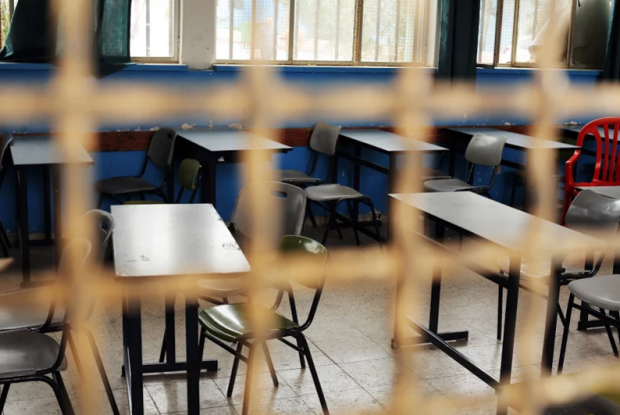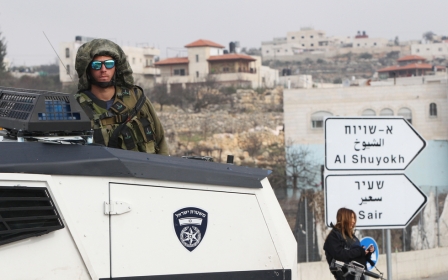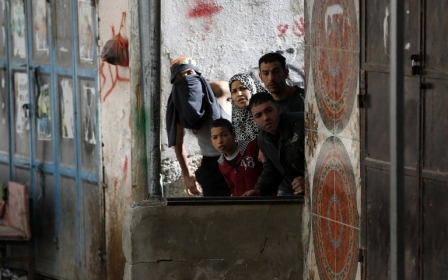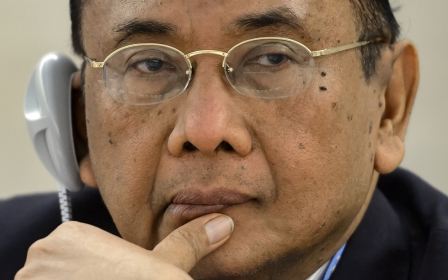Palestinian teachers continue strike after PA arrests educators
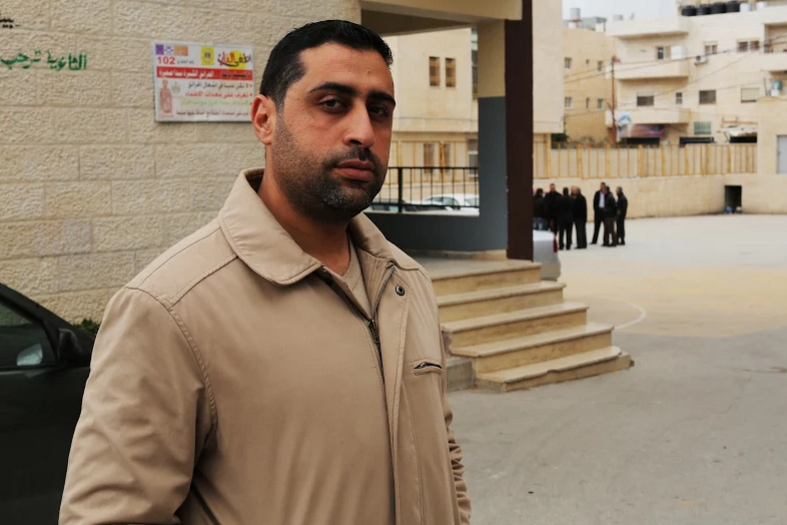
BETHLEHEM, West Bank - Rows of children alternated by gender lined up outside their school, sitting crossed legged under the freshly risen sun. They were anxious to enjoy the balmy weather that tells of the end of winter, all of them hoping that school would be dismissed before classes began, as has happened repeatedly during the past several weeks.
Squeals of laughter dissipated as teachers at Tuqu Primary School lined up in front of the rows. The children stood and began singing the national anthem in the bored tone typically replicated in classrooms across the world.
As they finish, the children were escorted row-by-row to dilapidated classrooms that fill the village school.
After the students settled in their rooms, around 20 teachers gathered in a circle discussing the same subject that every public school teacher has been talking about across the occupied West Bank - the strike.
Twenty minutes later a decision was made. Roll-call was taken and the children released from school. The strike, which affects over one million Palestinian pupils, it seemed would continue for another day.
On Tuesday around 20,000 Palestinian public teachers gathered in the governmental-hub of Ramallah to call for the 2013 agreement made between the Palestinian Teachers’ Union and the Palestinian Authority (PA) to be implemented, local media reported.
The 2013 agreement laid out plans for salaries, raises and promotions, as well as other issues such as free tuition at public universities for the children of teachers.
Following Tuesday’s protest in Ramallah, PA security forces arrested 20 teachers and two principals for questioning. The 22 educators were held for 24 hours before being released.
Two days later, on Thursday evening, the head of the Palestine Teachers’ Union, Ahmad Suheil, met with the Palestinian prime minister and the minister of education, and called an end to the strike.
By Friday morning it was clear the teachers were not happy with the decision, and the strike continued, although without the official support of the union.
Middle East Eye spoke with Suheil on Saturday to discuss the condition of the strike. Suheil said the strike had become a political pawn run by Hamas to discredit the PA, and that most teachers had agreed to end the strike.
However, an administrator at Tuqu Primary School, Freyal Abu Farha, made some calls on Saturday morning to other educators across the West Bank. Abu Farha said the claims were not true, and that the vast majority of teachers had pledged to continue with their strike.
Teachers at Bethlehem High School for Boys, around 20 minutes from Tuqu Primary School, predicted that Suheil would make statements about Hamas running the strike.
Now teachers at Bethlehem High School say educators are calling for Suheil’s resignation, with some even insisting that the Teachers’ Union, which is a Palestine Liberation Organization body, be disbanded and an independent union completely separate from governmental bodies set up.
“This is not about Hamas or Fatah or the Popular Front or any other political party,” said Mahmoud Jawabra, the principal at Bethlehem High School and a well-known supporter of Fatah, the ruling government party. “We are teachers who are not getting paid, and the government is not abiding by the agreement we made nearly three years ago.
“The government wants to discredit our cause by making this into something political, but it is much more simple than that, we deserve our salaries and our back-salaries.”
The PA has said there simply is not room in the budget to allocate all the salaries of government employees on a steady basis. The Teachers’ Union is only one of a handful of public sector employees who have gone on strike due to salary concerns in recent years.
However, during the past several years, particularly during the latest wave of upheaval that started in October, the Palestinian government has come under fire for its military spending, even while the economy has continued to suffer due to the poor security situation, the occupation in general as well as growing strain on foreign development budgets.
The security sector accounts for more half of all government employees and receives around a third of the PA’s budget, the lion’s share of the budget and double what is spent on education and health combined, according to the Arab Organisation for Human Rights UK.
Jawabra said the PA’s security expenditures are of no worry to the teachers on strike, whose main concern is that they be paid their salaries and receive a clear path to promotions and raises.
Arresting teachers
Teachers' frustrations, however, have been further fanned by what they say is a heavy-handed approach by the PA which arrested 20 teachers and two principals for questioning. Jawabra said he was appalled by the PA’s actions.
“All of the teachers went to their local mayor’s office and demanded their release,” Jawabra said. “We were shocked that the PA would go so far with such a scare tactic.”
Ayman al-Asa, a teacher at Bethlehem High School, was one of those detained.
“They called me and asked that I come in for coffee,” Asa said. “Twenty-four hours later the coffee was finished.”
Asa said he was held in a two-by-two meter cell through the night until he was released the next day. Charges or the official reason for his detention were never discussed.
Asa, who is a supporter of Hamas, Fatah’s main opposition that rules Gaza, said all 22 detained educators were also affiliated with Hamas.
The arrests were a ploy to scare teachers into ending their strike, he said, and to create a narrative that the strike was about political divisions, not teachers’ rights.
“We will not let them turn this into something political,” he said. “Listen, we are teachers, we love our job, we don’t do this for money, but we do deserve our salaries.”
‘They don’t value education’
Ali Bata, an English teacher at Bethlehem High School, told MEE that teachers are offended by the large increases in wages other government employees have reportedly received, while the wages of teachers have remained stagnant and often are not paid.
“The government has increased other employees’ salaries a significant amount - engineers are getting 90 per cent wage increases, doctor's 200 percent increases - but teachers are being offered 5 percent wage increases. Why they are doing this, we don’t know,” he said.
MEE was unable to immediately verify Bata’s account of wage increases in other sectors.
“Other professionals, they sit at their desk and drink coffee and read the newspaper and they are getting wage increases, but we deal with hundreds of children, we work so hard, this is a wonder.”
Another teacher, who asked to remain anonymous, insisted that the government does not realise the importance of teachers.
“Teachers are the most important professionals in the world. All the professions come from teachers, everyone in our society, no matter what they do - the politicians, the lawyers, the engineers - all of them started here, learning from us. If the teachers have no rights, the society will be broken,” he said.
“Even our kids now who wanted to be teachers before are seeing this and seeing we are not valued and now they say they don’t want to be a teacher. What kind of message is this sending?”
Bata agreed.
“This is the aim for them, to teach the children that education is not important,” Bata said. “The government says it doesn’t have money, but they have money when it is for something they want, something they value.”
Bata added that he thought the Israeli government had its hand in the PA’s dealings with teachers.
“We are under Israeli occupation, which is imposing its laws on the Palestinian government,” Bata said. “Personally I think Israel is pushing the [Palestinian] government to treat education as something not important, to keep our wages low and to keep the education system in a shambles because then it is easy to keep Palestinian society down.”
Additional reporting by Abed al-Qaisi
New MEE newsletter: Jerusalem Dispatch
Sign up to get the latest insights and analysis on Israel-Palestine, alongside Turkey Unpacked and other MEE newsletters
Middle East Eye delivers independent and unrivalled coverage and analysis of the Middle East, North Africa and beyond. To learn more about republishing this content and the associated fees, please fill out this form. More about MEE can be found here.


